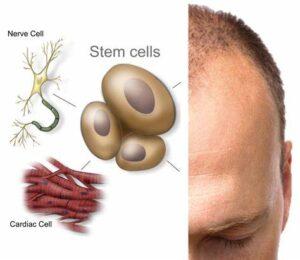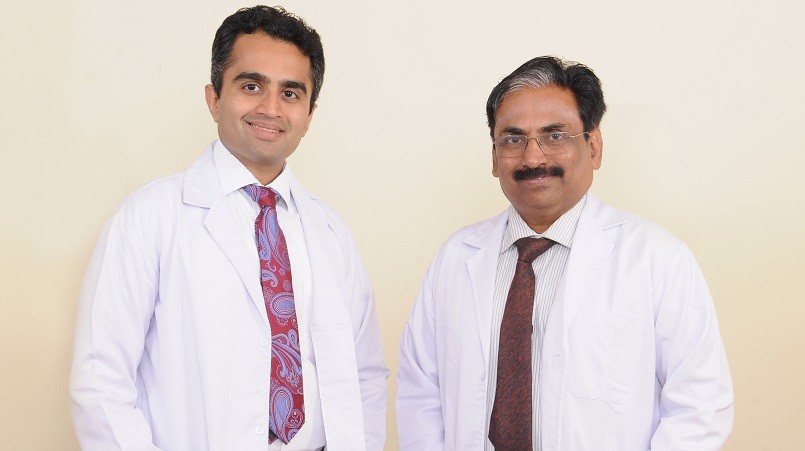With all the information available over the internet it can get confusing as to what to believe. Here we clarify some myths about hair transplant so you can be aware of practices that can put in harms way.
Myth #1: Robotic Hair Transplant
There is a new trend for false marketing using the term ‘Robotic Hair Transplant. This term sounds impressive, and many patients are drawn to it. However, this is misleading!!
There is only one robot capable of doing hair transplant which is the ARTAS robot.
This robot does the first step of FUE by making holes around the grafts. It DOES NOT extract the grafts or implant them. Those steps are done by humans.
There is no ARTAS Robot anywhere in India currently. Anyone advertising robotic hair transplant is doing so falsely.
The ARTAS robot is prohibitively expensive in the Indian context. Moreover, it is useful for unskilled surgeons who cannot do FUE without high transection. At our center, our speed and transection rate for FUE is better than the ARTAS robot.
There are other devices such as HAART which claim to be hair transplant robots and are marketed aggressively for the same. All these devices require humans to judge the hair angle and perform the FUE. Hence, they cannot be called TRUE ROBOTS.
It is often tempting to fall for these terms. One day, in the future, hair transplants might indeed be entirely performed by robots. However, at present, the technology is very expensive and can be beaten by skilled surgeons.
Myth #2: Stem Cells
The association has received several queries about stem cells of hair in the management of hair loss, and also about several advertisements which have appeared in the press about the use of stem cells for that purpose. This position statement is issued in public interest and states the opinion of experts in the field.
Position Statement on Stem cells – Association of Hair Restoration Surgeons India
The Association of Hair Restoration Surgeons (AHRS) does not support the claims of stem cells, hair multiplication, hair cloning, hair doubling and Dermal Papilla – DP Cell Culture, in the clinical management of hair loss or baldness. The association advises the public not to be misled and beware of misleading advertisements, and false claims made in the media.
From the existing evidence and current stage of stem cells research, hair cloning, and hair multiplication cannot be accepted to work as successful treatments for hair loss. Any physician wishing to practice such treatment should do so as a clinical trial or experimental treatment, after clearance from governmental authorities like the Indian Council of Medical Research (ICMR).
ICMR strongly disproves of advertisements claiming successful hair growth with stem cells, hair multiplication, hair cloning, hair doubling and Dermal Papilla – DP Cell Culture and cautions public not to believe such misleading claims.
The technique is incorrectly addressed as hair cloning, it is more of laboratory-engineered cell growth or cell-based therapy.
Some clinics/centers are fraudulently using preliminary data obtained from studies in mice to indicate the success in humans. Such results have never been reproduced in humans till date. The belief created, that these methods will similarly work in humans, is not true.
The behavior of cells cultured in the laboratory by artificial stimulation of growth is not predictable. The danger of uncontrolled growth and tumor/cancer formation cannot be ruled out. The same applies to claims of utilizing plant stem cells in the management of hair loss.
Till date, there is no published report which has demonstrated the formation of new follicles in the human bald skin.
At most, the clinical trials in humans have shown that injection of stem cells into the scalp led to some thickening of existing vellus hairs. But these results are similar to what is achieved with routine medical treatments.
Even if some stimulation of growth is achieved, the effect lasts only for half to one hair cycle and multiple treatments will be needed to maintain the benefits. Therefore, at this point in time, the expense of cell-based therapies does not justify the doubtful experimental benefits.

Why clarify myths about hair transplant?
It is very important to have clarity into any myths about hair transplant, as dubious practices can put your life at risk. We urge all our patients to clarify any and all myths about hair transplant that thay may have.
About The Doctor

Dr. Aniketh Venkataram was trained in Hair Transplantation by Dr. Venkataram himself. He is an expert in FUE and has contributed chapters to Dr. Venkataram’s books as well as presented numerous talks on the subject.



